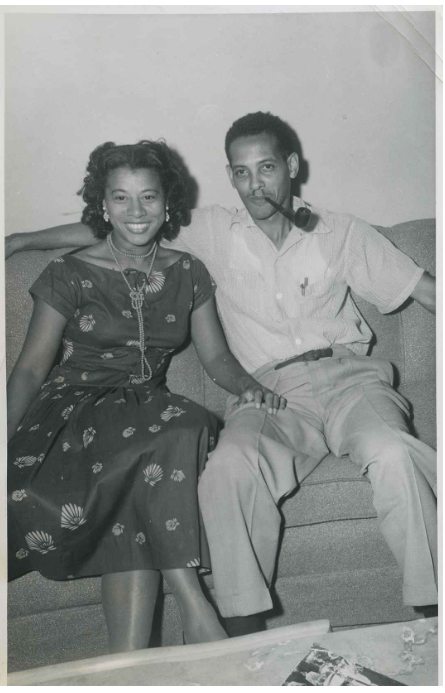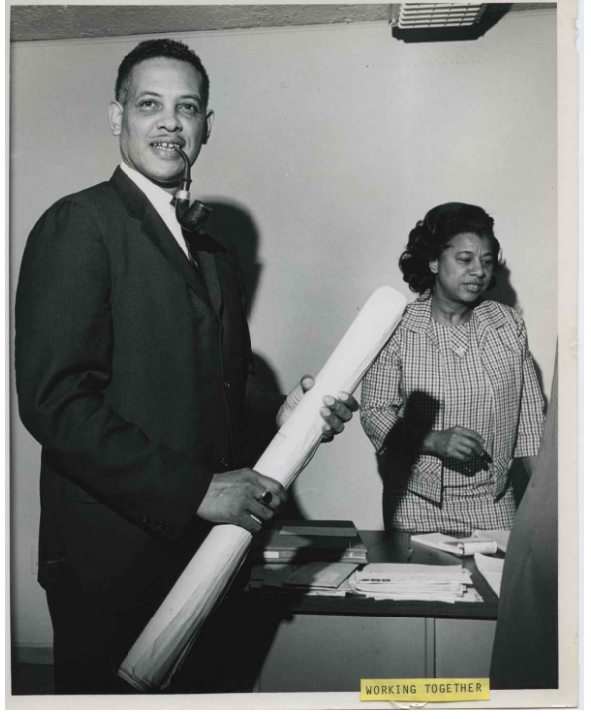
Join us for a new series of stories from the Center for Local History highlighting members of our community who made a difference in ways that helped shape our history and created positive change.
Their voices were not always loud, but what they said or did had a significant impact on our community.
William T. Syphax
Native Arlingtonian William Thomas Syphax (1920-1989) was a prominent Black business entrepreneur, philanthropist, and advocate for the Black community in Arlington County.
Born into Arlington’s venerable Syphax family (which included his great uncles William Syphax and John B. Syphax), Syphax earned a bachelor’s degree in math from Virginia State in 1942, a master’s degree in engineering administration from George Washington University, and eventually a Ph.D. in behavioral philosophy from Pacific Western University. After a stint with the Army Air Force during WW2, he worked for the Department of Defense as an electrical engineer until 1964.
In the mid-late 1950s before his retirement from the Department of Defense, Syphax and his wife Margarite began building houses in Arlington. After seeing how many Blacks in Arlington County had to accept unsafe and inadequate conditions in the predominantly segregated Northern Virginia housing market, the couple began to concentrate on building well-crafted and affordable homes for their community.
Together, with William as developer and Margarite as secretary-treasurer, they founded Ballston-based W.T. Syphax Real Estate Co. and Syphax Management Co., ranking among the nation’s top 100 Black-owned businesses in the early 1970s and were profiled in Newsweek and Black Enterprise magazine. They built homes in Arlington View (where William had grown up), Highland Park, Green Valley and elsewhere. Their first apartment complex was Arlington View Terrace, a 77-unit complex of garden apartments near Army Navy Country Club.
William T. Syphax and Margarite Syphax "Working Together" at their construction firm, 1960s.
Syphax was president of the Virginia Real Estate Brokers Association, chairman of the Arlington County Building Code Board of Appeals, as well as serving as director of the Arlington County Red Cross. He provided financial assistance to over 100 students from the segregated Hoffman-Boston public school for their college education and was music department chairman and senior choir director at Mount Olive Baptist Church in Arlington.
Do you have a question about this story, or a personal experience to share?
Use this form to send a message to the Charlie Clark Center for Local History.
Center For Local History - Blog Post Message Form
Do you have a question about this story, or a personal experience to share? Use this form to send a message to the Center for Local History.
"*" indicates required fields

